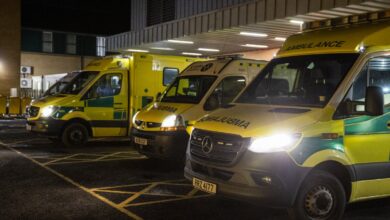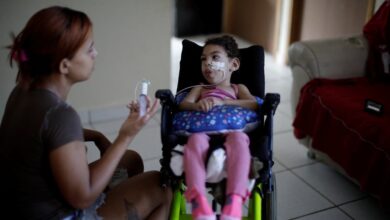NHS row intensifies as leaders hit back at coroner’s defence of heart surgery unit

NHS leaders have condemned a coroner’s intervention in a scandal-hit cardiac surgery unit, warning the official defence may put patient safety at risk, leaked documents reveal.
NHS England has defended the decisions it took to restrict heart surgery at St George’s University Hospital Foundation Trust after a senior London coroner condemned the actions earlier this year.
It is the latest in a four year saga over the quality of cardiac surgery in the trust’s specialist unit after concerns were raised in 2018 warning the unit’s “toxic” environment was harming patients.
Senior coroner Fiona Wilcox is overseeing the inquests of 67 heart surgery patients treated by the hospital. These patients were referred to the coroner following an independent review commissioned by NHS England in 2018 which found poor care may have resulted in their deaths.
Out of the 67 cases referred, in 26 inquests the coroner has so far not found that poor care led to their deaths.
Following the most recent inquest, Coroner Wilcox served NHS England and St George’s University Hospital with a highly critical prevention of future deaths report warning patients had died unnecessarily because of restrictions placed on the unit by the NHS.
The coroner argued the decision to restrict the service was “unfounded” as it was based on the findings of the “inadequate” independent review.
Restrictions on the number and type of surgeries the unit could do were enforced by NHS England in August 2018, but were lifted last year.
In an official response to the coroner, seen by The Independent , NHS medical director Stephen Powis defended the decision to restrict the service and the review. He also warned: “We regret that the PFD in this case could potentially set back the approach to restoring service capacity and relationships at the Trust, as well as public confidence, creating further conflict and doubt for families, staff and leadership teams in both the Trust and NHSE, at a time when the focus is (rightly) on restoration of relationships and quality of the service, in the sole interest of patient safety.”
Since 2018 St George’s University Hospital and NHS England have also been locked in a row with surgeons in the unit who have argued, according to The Times, the trust is “fostering a risk averse culture.”
As a result of the initial concerns in 2018 two doctors were suspended by the trust but then reinstated following a court battle and found to have no case to answer in relation to referrals to the General Medical Council.
The Independent revealed in June that training authority Health Education England had identified on going concerns over “inappropriate” behavior within the unit.
In her warning to NHS England and the trust coroner Wilcox said the “unnecessary restrictions” on the operating rights of surgeons in the unit, had resulted them being able to treat less patients. She said may result in patients waiting too long for surgery risk dying while waiting and that emergency patients were also dying after being diverted away to other trusts.
In a response from St George’s University Hospital chief executive Jacqueline Totterdale, seen by The Independent, the trust said during the period the restrictions were in place eight per cent of patients were diverted and it was not aware of any patient deaths as a result of emergency diverts.
In criticisms of the independent NHS review coroner Wilcox said clinicians involved were not able to provide adequate feedback, the time spent by reviewers looking at the cases was “negligible” and the review chair worked at a hospital with less complex cases.
However, NHS England has said clinicians involved were given a chance to feedback on accuracy through the process and argued the time spent reviewing records was not relevant to the opinions express by the panel.
In relation to the independent review chair, Mike Lewis, NHS England said the coroner’s “potentially disparaging” inferences are “inappropriate.”
It said: “As you will no doubt appreciate, given your own important role in the patient safety sphere, it is of the utmost importance to not only ensure that the appropriate standard of care is provided in our healthcare system but also that the public have confidence that when patient safety concerns are identified, these are investigated and steps taken to ensure the safety of all those using the service.”
The coroner’s report argued patients’ families had been subject to “pain and distress” as a result of the “unfounded” criticisms of care in the NHS deaths review.





